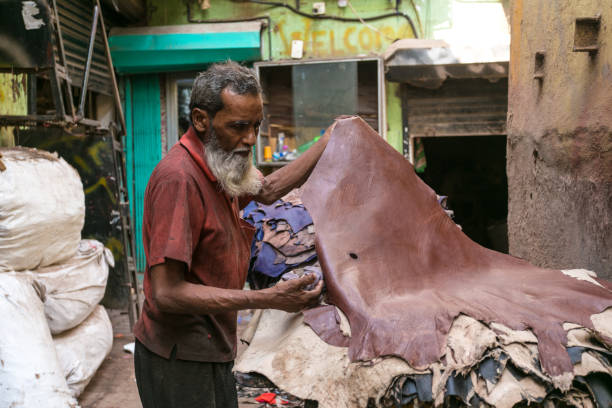
Dalit Workers in India’s Leather Industry Suffer Serious Rights Abuses – India Committee of the Netherlands Report
A report released by the India Committee of the Netherlands finds that workers in India’s leather industry suffer serious labour and human rights violations. Most of the 2,5 million leather workers are found to be Dalits and Muslims, exploited due to their marginalised status. India supplies leather to huge global brands.
Caste Discrimination in the Leather Industry
The report states that Dalits in the leather industry are often paid less than non-Dalit co-workers and that caste discrimination is seen to underpin the exploitative conditions, as leather work has traditionally been considered impure and a caste-based occupation. Wages are found to be much lower than for comparable work in other industries and the poor working conditions reflect that those engaged in this work have no alternatives.
Dalit and Muslim labourers don’t seem to have benefited from either the growth of or the support for the sector at all. On the contrary, the Dalits, who are at the bottom of the social hierarchy, are less resistant to exploitation by employers. Since the leather industry is the only option for their subsistence, they are highly vulnerable to being abused. They endure meagre wages, long working hours and harsh labour conditions. While a minimum wage should be the lowest wage paid, the reverse is true for the leather industry in India. The highest wages paid in a factory are often around the level of a minimum wage.
Rights violations mentioned in the report include wages below the stipulated minimum, unacceptable health risks due to the unsafe use of toxic chemicals, child labour, obstructions faced when organising in trade unions and caste discrimination.
Children are often involved in leather production in India, mostly in the unorganised part of the sector, working in smaller tanneries. There are several examples of children found at work in Indian tanneries under inhuman conditions, forced to work more than 12 hours a day.
You can read the full report from here.
About ICN –
The India Committee of the Netherlands (ICN) is an independent non-governmental organisation campaigning and doing advocacy work on human rights issues. Central to the work of ICN are the issues of caste-based discrimination, labour rights and child labour & education. ICN co-operates with organisations in India and elsewhere in combating discrimination, poverty, oppression, exploitation and lack of education, focusing on the role of policy makers and companies. ICN is an active member of networks like the Stop Child Labour campaign, the Clean Clothes Campaign, the International Dalit Solidarity Network and the Dutch MVO Platform.



+ There are no comments
Add yours